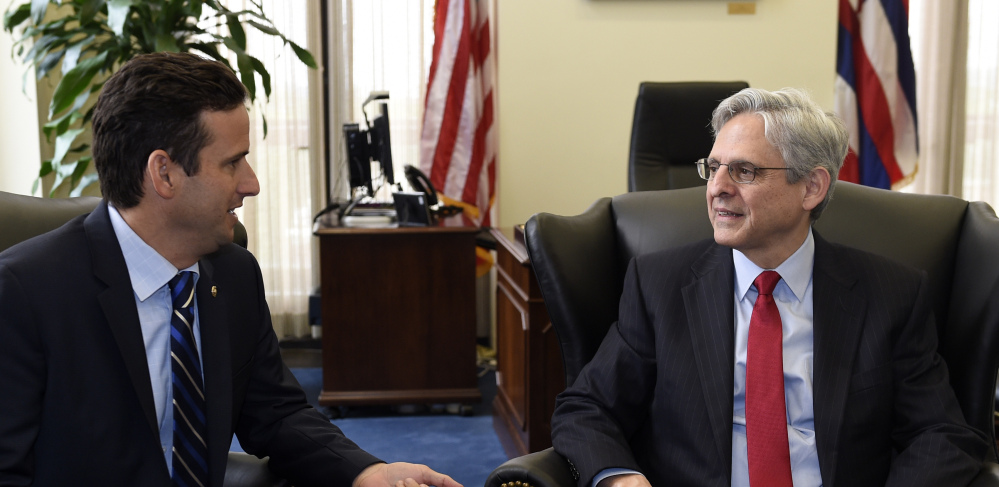WASHINGTON — Supreme Court nominee Merrick Garland detailed his most significant cases in thousands of pages of documents submitted to Congress on Tuesday, including his role as a federal prosecutor in the 1995 Oklahoma City bombing case and the prosecution of Unabomber Ted Kaczynski.
The lengthy questionnaire isn’t likely to sway many minds in Congress, where Republicans have insisted on delaying the Supreme Court fight until after the presidential election. But the White House still had Garland fill out a questionnaire, and the committee posted the document online, as is routine with nominations.
Garland is currently the chief judge of the U.S. Court of Appeals for the District of Columbia Circuit. Garland’s account of his most significant opinions as a judge includes one that upheld a ban on campaign contributions from federal contractors. Another affirmed the application of the Endangered Species Act to a commercial real estate project that threatened a protected toad. Two others sided with people mounting job discrimination lawsuits.
In his long career on the bench and as a Justice Department official before that, Garland had a reputation for being pro-prosecutor and pro-government.
His listing of significant opinions also includes one case in which he voted to throw out a criminal conviction for a drug trafficking conspiracy, a second dissenting opinion in which he would have allowed lawsuits to continue against private contractors over allegations of abuse at the Abu Ghraib prison in Iraq and a third that sided with a Uighur detainee at Guantanamo Bay who challenged his status as an “enemy combatant.”
He also cites his role as a federal prosecutor in the Oklahoma City bombing and Unabomber cases before becoming a judge, noting that both were convicted. McVeigh was executed, while Kaczynski was sentenced to life imprisonment without the possibility of parole.
Garland’s submission was missing forms typically included to provide a more detailed description of his net worth. The White House said it would provide that information if the Senate Judiciary Committee requested it.
Garland reported that he was first called by the White House about the Supreme Court vacancy on Feb. 29 – 16 days after Justice Antonin Scalia’s death. He said he was interviewed by President Barack Obama on March 9, a week before Obama announced his nomination.
Send questions/comments to the editors.



Success. Please wait for the page to reload. If the page does not reload within 5 seconds, please refresh the page.
Enter your email and password to access comments.
Hi, to comment on stories you must . This profile is in addition to your subscription and website login.
Already have a commenting profile? .
Invalid username/password.
Please check your email to confirm and complete your registration.
Only subscribers are eligible to post comments. Please subscribe or login first for digital access. Here’s why.
Use the form below to reset your password. When you've submitted your account email, we will send an email with a reset code.